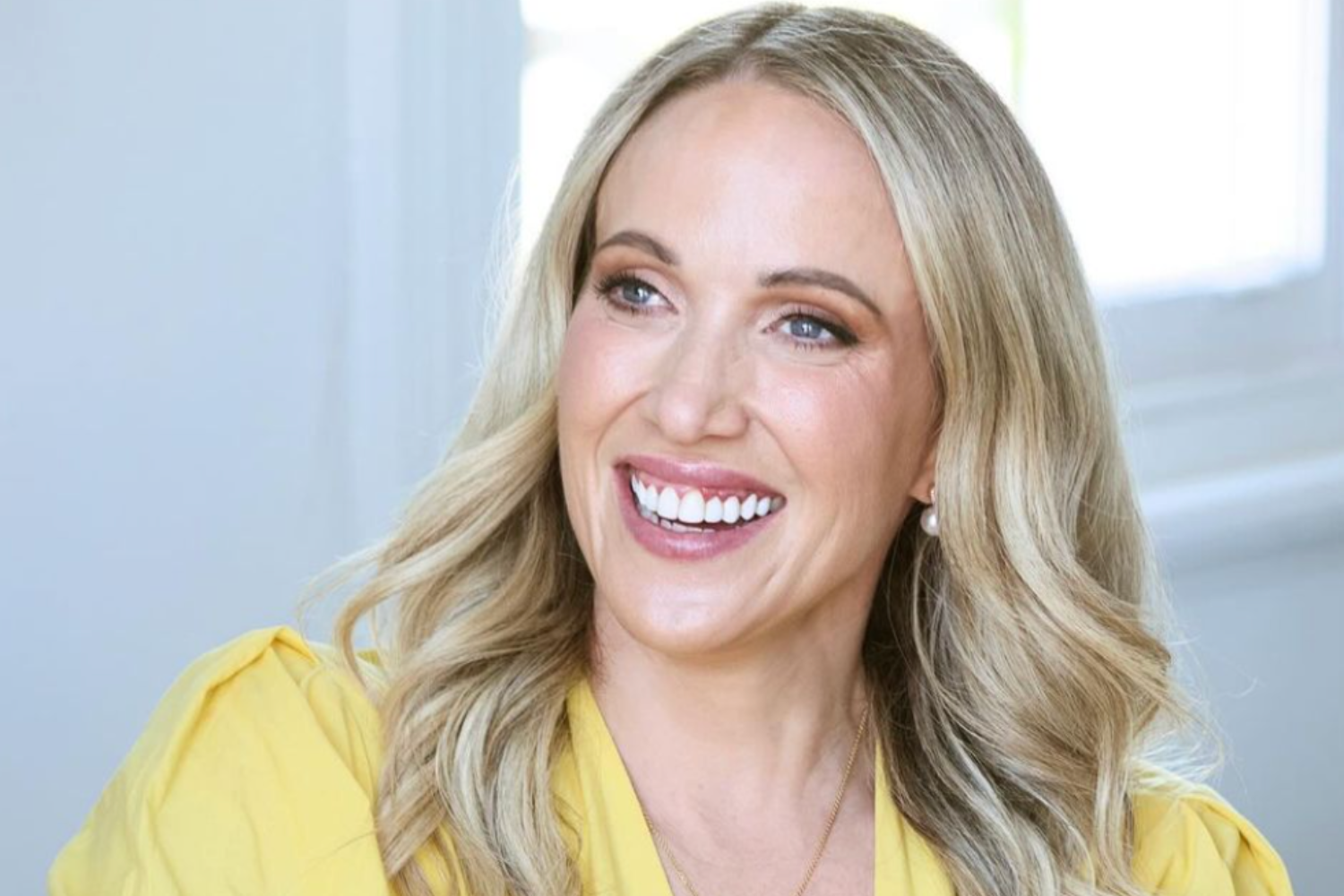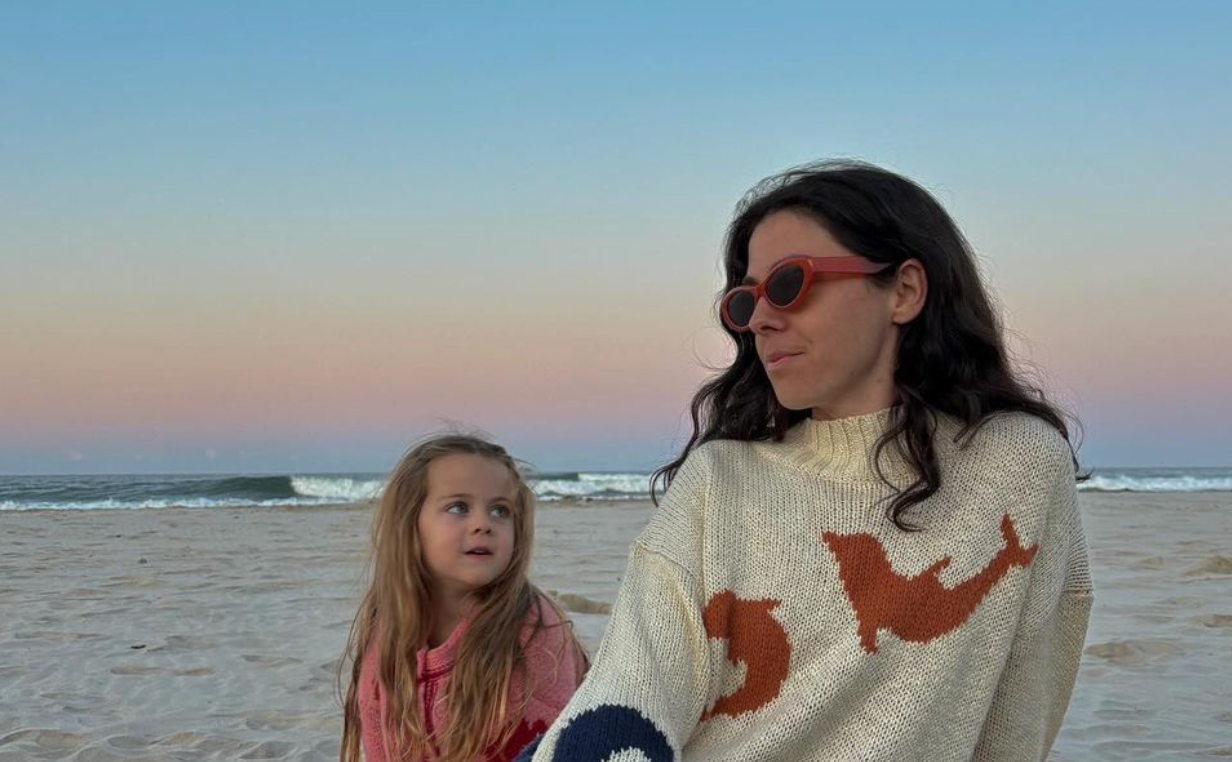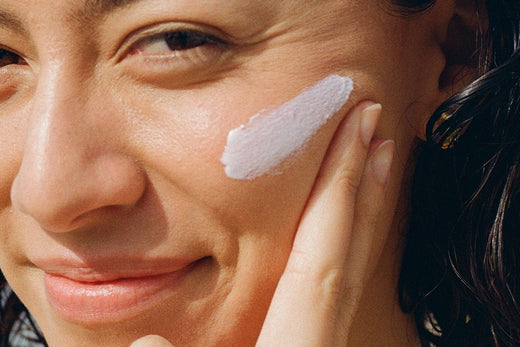#MOTHERMUSE DR KATE JAMESON

Introducing Dr. Kate Jameson, a trailblazer in Australian aesthetic medicine and skin health. As the founder of Youth Lab, she is celebrated for her expertise in non-surgical facial rejuvenation, offering transformative results that enhance natural beauty. Beyond aesthetics, Kate is also the Executive Director of Shade Skin, a specialised clinic dedicated to the early detection and treatment of skin cancer for West Australians. With her dual focus on cosmetic innovation and preventative skin health, Kate’s work embodies a commitment to excellence, holistic care, and the well-being of her community.
Skin cancer is one of Australia's most common cancers. What are the most important steps individuals can take to protect their skin and reduce their risk of skin cancer?
Skin cancer is the most common form of cancer in Australia, but it is also the most preventable.
Protecting your skin is all about consistent, thoughtful sun care. The most crucial step? Using SPF every day is non-negotiable. Applying your sunscreen 20 minutes before exposure and every 2 hours thereafter, especially after swimming or sweating may seem like a hassle, but it is the simplest and most effective way to protect your skin.
How often should people schedule skin cancer screenings, and what factors might influence this recommendation?
I recommend a professional, all-body skin cancer screening once a year for most people. However, if you are in a higher-risk category, screening every 6 months is essential.
Who falls into that higher-risk group? Typically, those with a lighter skin colour, red or blonde hair, skin that tends to freckle and burn easily, and individuals with a family history of skin cancer.
Regular screenings are so important - they allow for cancer to be detected at its earliest, most treatable stage. Early detection can be the difference between a minor intervention and a life-altering diagnosis.
My passion behind skin cancer prevention and treatment led me to develop Shade Skin Cancer Medicine with my husband and business partner Dr Emily Alfonisi to provide West Australians with high level of service and care in primary prevention and education.
What are the early signs of skin cancer that you wish more people were aware of? What should we be looking for?
The early signs of skin cancer appear as skin changes. Skin cancer often begins as new spots, freckles, or moles that evolve in size, shape, or colour over time (weeks to months).
Look out for:
- Lumps that are pale and red.
- Crusty sores that don’t heal within 4 weeks.
- Spots that are itchy, bleeding, or unusual in appearance.
It is challenging to catch every new spot that appears, but staying vigilant and paying attention to changes is key.
In your experience, what are the biggest misconceptions people have about skin cancer?
There are two major misconceptions about skin cancer that always stand out to me.
You need lots of sun exposure for Vitamin D.
While sun exposure is necessary for your physical and mental well-being, too much sun exposure without proper sun protection can be harmful.
In the Australian climate, UV (ultraviolet) levels are often too high - even on cloudy days. Yes, you can still get burnt when it is overcast, so always wear a hat and re-apply SPF throughout the day.
Makeup with SPF is enough.
Unfortunately, most makeup products with SPF only offer minimal protection (typically SPF 15) - this isn’t sufficient. It’s a good idea to dedicate a SPF 30 or 50 sunscreen to your skincare routine.
Skin cancer is one of the most preventable cancers, with the vast majority of skin cancers, including melanoma, being caused by overexposure to UV rays. Can you share a story or example where early detection made a significant impact on a patient’s life?
From personal experience I have seen the importance of early detection in my Dad’s melanoma diagnosis. In 2019 we noticed a small changing mole to his forehead, unfortunately it was located under his watch strap so he never paid too much attention to it. Following a biopsy it was confirmed to be a melanoma-in-situ, caught early, so was easily removed without any extensive surgery. This early diagnosis has ensured he has remained vigilant in his skin checks and protection and has also resulted in a second melanoma-in-situ being diagnosed recently at the early stage.
UV exposure is the cause of 80% of premature ageing, what do you look for in an SPF to make sure you are getting the best protection possible?
While there is an abundance of sunscreens on the market, here are a few tips to help you choose!
- Choose an Australian-made sunscreen (our regulations are among the world’s strictest).
- Pick an SPF 30 or 50+. SPF 50+ is a non-negotiable in my skincare routine - it filters out 98% of UVB rays.
- Look for “broad-spectrum” protection against both UVA and UVB rays.
- Consider your skin type. Do you need extra hydration? Or prefer an oil-free formula? There is a sunscreen for every skin type!
Why is it so important to use an Australian made SPF?
It is so important to use an Australian SPF as The Australian Therapeutic Goods Administration (TGA) has stringent laws around sunscreen production, labelling, ingredients, and efficacy. When you purchase Australian-made sunscreen, you’re guaranteed a product that has been rigorously thoroughly tested for its safety and effectiveness. The “broad-spectrum,” label indicates comprehensive protection against those harmful UVA and UVB rays.
What are your favourite treatments or ingredients for sun damaged skin? In your opinion, is sun damage irreversible? Is it possible to undo the damage or is it really too late?
I am a huge advocate for Vitamin C serums. Vitamin C is the powerhouse of antioxidants that I recommend to all of my clients.
This powerful ingredient neutralises free radicals from UV rays and environmental pollutants, helping to protect and repair skin while diminishing pigmentation.
A tinted mineral SPF for sun-damaged skin such as MOTHER Face Barrier is another essential.. This tinted facial sunscreen provides high-level UVA and UVB protection and is perfect for skin with pigmentation concerns.
It helps regulate melanin production, working to prevent dark spots, while the sheer, natural tint blends beautifully into the skin.
While prevention is always better than cure, there are certainly ways to improve the appearance of sun-damaged skin. It is never too late to start taking care of your skin.
Youth Lab’s Sciton BBL Corrective treatment is a versatile treatment delivering phenomenal results for pigmentation and skin discolouration. BBL (broad band light therapy) is an innovative light-based system that sets the standards in non-surgical light-based facial rejuvenation.
What are your other tips & tricks for maintaining healthy skin?
Maintaining healthy skin comes down to these main factors:
- Investing in medical-grade skincare products. SkinCeuticals and UltraCeuticals MD are my go-tos. My essential product is SkinCeuticals CE Ferulic without a doubt.
- Never skip your SPF! Get into the routine of applying it every day and during the day when out and about.
- Schedule regular skin checks. This is something that you might be tempted to put on the later list (trust me, we all do it) but it is way too important.
- Maintain a balanced, nutrient-rich diet. Good skin starts from within.
Lastly, In the last five years, what new belief, behaviour or habit has most improved your life?
The last 5 years have seen a transition for me from a young business woman to becoming a mother. Having my son in 2020 has without a doubt changed my behavior and belief systems and improved my life in significant ways (despite adding a new level of chaos). I have found that slowing down and focusing on the present moment, especially when I am with my two boys, has been transformative for how I work and has given me a new perspective and drive.
If you are in the Perth area, to receive 50% off your order with a receipt of your booking before the 25/12/24 book a skin check appointment by heading to Shade Skin online booking service now.



Comments